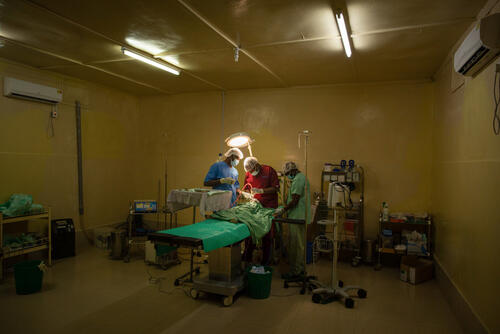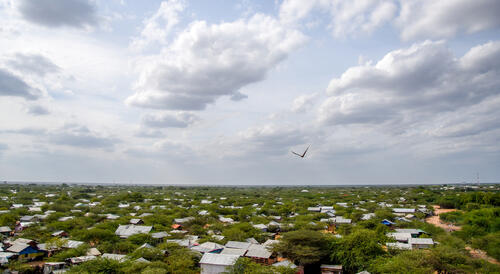NAIROBI – With the deadline to close refugee camps in Kenya just over six months away, urgency is mounting to find sustainable solutions for refugees in the camps at Dadaab, who risk being deprived of the little assistance they currently receive, warns Médecins Sans Frontières (MSF) today.
“The planned closure of the camps in June 2022 should be an opportunity to accelerate the process of finding lasting solutions for refugees,” says Dana Krause, MSF head of mission in Kenya. “At present, the mostly Somali refugees in Dadaab – many of whom have been trapped in the camps for three decades – face dwindling humanitarian assistance and limited options for leading safe and dignified lives.”
In a new report released today, MSF calls on Kenya and its international partners to live up to the commitments made in the 2018 Global Compact on Refugees by allowing Somali refugees to integrate into Kenyan society or to be resettled abroad.
Kenya now has a simple choice: to let refugees slide further into precariousness, or to champion their rights by offering them the chance to study, work and move freely.
DANA KRAUSE, MSF HEAD OF MISSION IN KENYA
The report reveals that the number of refugees returning voluntarily from Kenya to Somalia has fallen sharply over the past three years – from over 7,500 in 2018 to less than 200 in 2020, according to UNHCR. This fall in returns coincides with rising violence, displacement and drought within Somalia.
Meanwhile, resettlement offers from rich countries have largely dried up, leaving refugees with little choice but to stay in Kenya, where they have limited rights. Refugees in Dadaab are currently barred from working, travelling or studying outside the camps.
The recent signing into law of Kenya’s refugee bill could provide the chance for greater integration of refugees within the country, but this is dependent on it being implemented broadly to include all refugees, including Somalis.

“Kenya now has a simple choice: to let refugees slide further into precariousness, or to champion their rights by offering them the chance to study, work and move freely,” says Krause. “Donor countries must share responsibility by increasing development assistance to Kenya so that it can ensure refugees have access to public services.”
The plan to close the camps has already caused humanitarian assistance to plummet, with the World Food Programme warning in September that it may be forced to stop distributing food rations altogether by the end of this year if more funding does not arrive.
“What we fear most is that closing the camps without offering solutions to refugees could result in a humanitarian disaster,” says Jeroen Matthys, MSF’s project coordinator in Dagahaley, one of the three camps that make up Dadaab.
“It is vital that refugees have uninterrupted access to humanitarian assistance throughout the camp closure process and until they have certainty about their future and can become self-reliant.”
“Even as rich countries have flouted refugee rights, Kenya has remained generous in hosting hundreds of thousands of refugees for years,” says Krause. “As we mark the 70th anniversary of the Refugee Convention this year, Kenya should seize this opportunity to turn the tide and find lasting solutions that have the interests of refugees at their heart.”
MSF has provided healthcare to refugees in Dadaab for most of the camps’ existence, having set up activities in the camp for the first time in 1991. Our current programmes are focused in Dagahaley camp, where we provide comprehensive healthcare to refugees and host communities, including basic and specialist care through two health posts and a 100-bed hospital. Our medical services include sexual and reproductive healthcare including emergency obstetrical surgeries, medical and psychological assistance to survivors of sexual and gender-based violence, mental health, home-based insulin care and palliative care.
In 2020, we held an average of 12,500 outpatient consultations and some 720 inpatient admissions every month in Dagahaley. We also assisted 2,956 births throughout the year.
